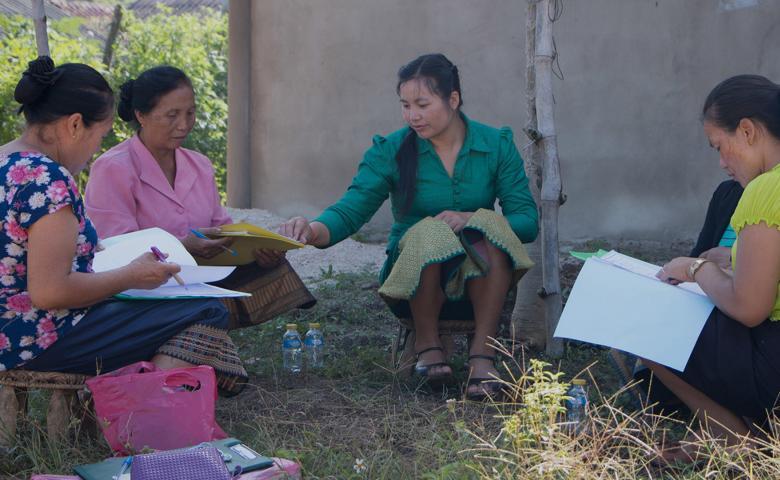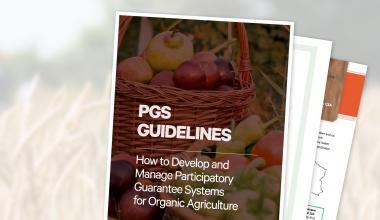Social relationships and collaboration are at the foundation of Participatory Guarantee Systems (PGS), a quality certification method alternative and complementary to third-party certification that Slow Food has been studying and implementing since 2018. This article reports on some of their findings of a pilot project implemented by Slow Food with support from PGS experts at IFOAM - Organics International.
PGS are locally focused quality assurance systems. They certify producers based on active participation of stakeholders and are built on a foundation of trust, social networks and knowledge exchange.
Earth Markets are composed of producers that embrace the Slow Food philosophy worldwide, promoting good, clean and fair food for all. They are unique agoras where people can buy high-quality products, build communities, open to creative exchanges, and find education. In 2019, Slow Food started discussing among Earth Markets' coordinators and producers about their willingness to embrace a quality guarantee tool.
As PGS initiatives are rooted in trust, active collaboration, social relations and knowledge exchange rather than control, various potential benefits could be envisioned for Earth Markets: PGS can provide a way for producers to get quality certification while also helping establish shared horizontal governance in the community. Moreover, they contribute to enhancing education on food production and agricultural practices among the general public, since they seek the involvement of consumers in the certification process.
The Targ Pietruszkowy Earth Market community in Krakow, Poland, showed interest in experimenting with PGS. Slow Food, in partnership with IFOAM - Organics International, launched a feasibility study, and as the final step, organised a PGS pilot workshop in July 2022 in Krakow, to build capacity and further explore options to build a PGS initiative for this Earth Market.
Implementing the workshop
One of the first challenges that arose before the workshop was to find a common set of standards when dealing with a combination of third party certified organic producers and producers without any certification. This was addressed on the first day of the workshop, focused on discussing possible PGS structures and tools adapted for the stakeholders involved in the Targ Pietruszkowy Earth Market. On the second day, participants experimented with peer reviews and farm visits, during an excursion to three farms.
This excursion showed how fundamental PGS farm visits are in providing an avenue for knowledge exchange between farmers. Especially when it came to discussions on new and improved ways to tackle problems such as seed provisioning, water use and energy conversion. As shared by Daria, one of the participants:
None of the visits felt like an inspection but rather a guided tour of the beautiful and biodiverse fields each producer manages. We all know each other and provide space for everyone to grow. There is collaboration that enables me to approach the other producers like Lukasz for instance if I want to buy carrots. It also creates a sense of community and friendship.
The Slow Food Community of the Targ Pietruszkowy Earth Market agreed that this kind of initiative would be beneficial for them and the market. They proposed many new ideas to adapt the PGS tools to their local context and how to make the process meet their needs and work schedule. For example, planning the visits during off-season time for some producers and in-season for others, and vice versa.
“I’ve been wanting to visit Lukasz’s farm for a year, and now I'm finally here. I want to come back to ask him more about his energy production”, shared Yacek, a participant. This corroborates the idea that peer reviews are constructive and have to be planned more often.
The Krakow Earth Market (Targ Pietruszkowy)
Back at the Targ Pietruszkowy Earth Market in Krakow, after the two-day workshop, the farmers were able to socialise with each other and also with consumers. PGS initiatives such as this one contribute to creating a meeting place that brings different players, for example, producers, market vendors, consumers and policymakers to the same table.
Although there were doubts about how this certification would work in parallel with third-party certification, all the stakeholders agreed that the process of exchange that PGS initiatives encourage is very important and has potential to further develop agricultural systems .
The workshop was facilitated by IFOAM - Organics International that has been supporting PGS initiatives for organic production around the world since 2004 while also collaborating with like-minded organisations like Slow Food, to advocate for and promote the growth of PGS.
About the author: Silvia Rota is Slow Food’s PGS initiatives facilitator. She helps Slow Food Communities around the world in the process of studying and implementing the Participatory Guarantee Systems initiatives. Slow Food is a global, grassroots organization founded in 1989 that is working to ensure access to good, clean and fair food.

Participatory Guarantee Systems - An Alternative and Complementary Tool to Third-Party Certification






